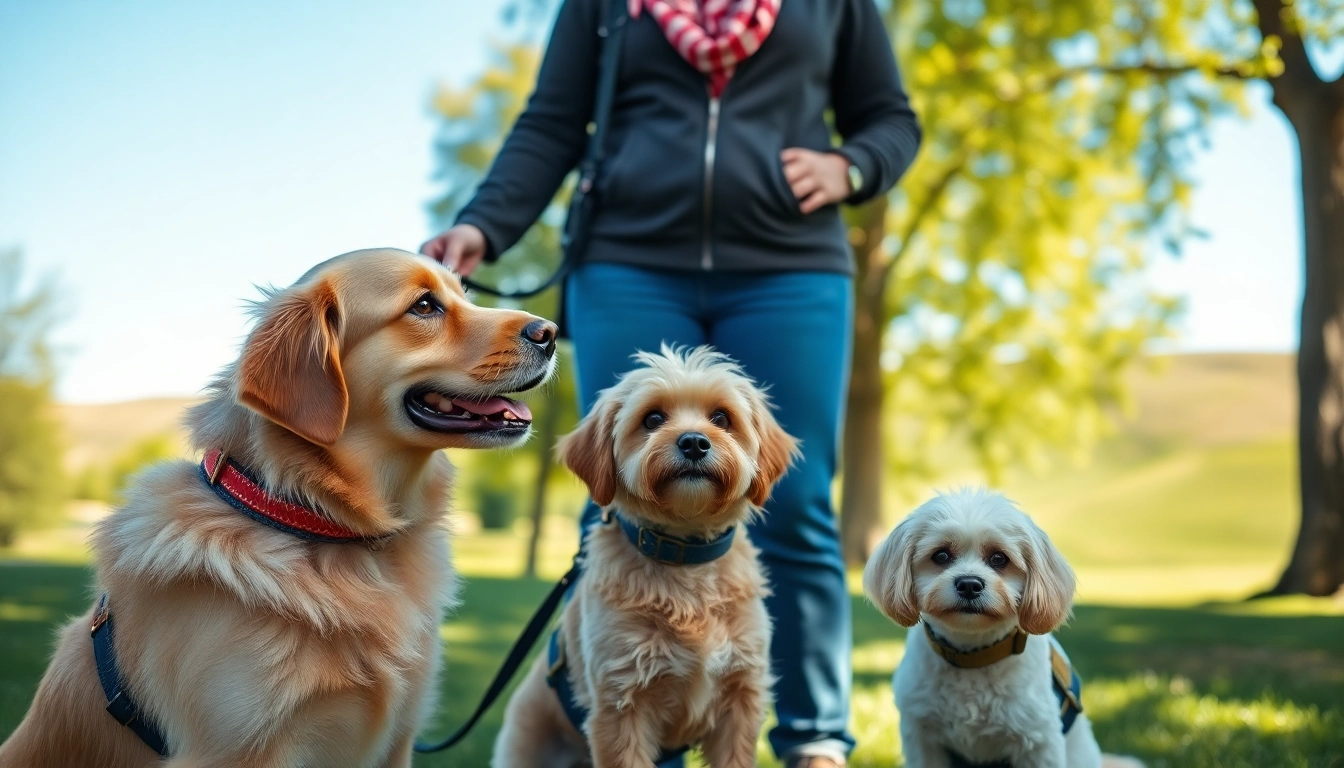Understanding the Importance of Cleaning Up Dog Poop
Cleaning up after your dog is an essential responsibility for any pet owner. Not only does it promote a healthier living environment, but it also contributes to the community and environment at large. Properly addressing dog waste can prevent health risks, environmental degradation, and even legal repercussions. As a responsible dog owner, knowing how to clean up dog poop effectively is crucial for everyone involved.
Health Risks Associated with Dog Waste
Dog poop can harbor numerous pathogens, bacteria, and parasites that pose health risks to both humans and other animals. Giardia, roundworms, and hookworms are common parasites found in dog waste, which can lead to serious health issues when transmitted. For example, children playing outside may unknowingly come into contact with contaminated soil or grass, increasing their risk of infection. Moreover, the potential for diseases such as leptospirosis and salmonella adds to the urgency of proper waste disposal.
The Environmental Impact of Dog Poop
Dog waste has substantial negative effects on the environment when not disposed of responsibly. The nitrogen and phosphorus found in feces can disrupt local ecosystems, leading to nutrient overload in water bodies. This nutrient overload promotes algae blooms, which can deplete oxygen levels and harm aquatic life. Additionally, leaving waste on the ground allows pathogens to leach into groundwater, posing a further environmental hazard.
Legal and Community Responsibilities
Many municipalities have laws requiring pet owners to clean up after their dogs in public spaces. Failing to comply can result in fines and damage to community relationships. Moreover, responsible pet ownership fosters a positive image for dog owners and promotes cooperation within neighborhoods. By taking on the responsibility to maintain clean public spaces, dog owners contribute to a more enjoyable and safe environment for everyone.
Tools You Need to Clean Up Dog Poop
Different Types of Dog Poop Scoopers
When it comes to cleaning up dog poop, the right tools can make all the difference. Scoopers are widely available in various designs, catering to different preferences.
- Traditional Scoops: Basic plastic scoops are affordable and effective for yard use. They allow for easy removal without requiring too much effort.
- Long-Handled Scoops: These are ideal for those who want to avoid bending over. Long-handled designs can help keep a comfortable distance from the mess.
- Mechanical Scoopers: Some advanced scooper models utilize mechanical functions, making the process even more effortless. These gadgets can scoop, contain, and sometimes even dispose of waste automatically.
Waste Bags: Choosing the Right Option
Utilizing waste bags is essential for responsible pet ownership. However, not all bags are created equal. Opt for strong and durable bags that can prevent tears or spills during transport. Some popular options include:
- Plastic Bags: Standard plastic bags are widely available but may not be eco-friendly. Look for bags labeled as recyclable or biodegradable.
- Compostable Bags: These bags break down over time and are an excellent eco-friendly choice. They are often made from plant-based materials, reducing environmental impact.
- Degradable Bags: Made from materials that degrade faster than standard plastic, degradable bags are another option to consider.
Additional Cleaning Supplies for Various Scenarios
In certain situations, additional cleaning supplies may make the process more efficient. Some recommended items include:
- Disinfectant Wipes: These can be useful for cleaning your hands or any tools after handling waste, ensuring you maintain hygiene after the process.
- Pet Odor Remover: An effective odor remover can help eliminate lingering smells in your yard after cleaning, making for a more pleasant environment.
- Steam Cleaners: If you’re facing cleanup indoors, a steam cleaner is excellent for sanitizing surfaces while removing stains.
Step-by-Step Guide to Clean Up Dog Poop
Preparing Your Supplies Before Heading Out
Prior planning simplifies the cleanup process. Gather all necessary supplies and keep them organized. Ensure you have a sufficient number of waste bags, disinfectants, and any other items needed for your specific situation. If walking in a public space, remember to carry extra bags to accommodate unforeseen circumstances.
Techniques for Efficient Poop Removal
The goal of effective cleanup is to minimize mess while ensuring complete removal of waste. Here are some techniques:
- Scooping Technique: For firmer waste, gently press the scoop under the urine or the base of the stool, then lift. For softer stools, consider using a bag to pick it up directly.
- Bagging Technique: Place your hand inside the bag, covering your hand completely. Use your glove-covered hand to grab the poop, then turn the bag inside out as you seal it off. This method ensures minimal contact.
- Roll and Toss: With smaller amounts, roll the waste in the bag before sealing to ensure no leakage occurs during disposal.
Tips for Avoiding Common Pitfalls
A few common mistakes can impede effective dog waste cleanup. Consider these pitfalls to enhance your strategy:
- Always check the bag for integrity before use; ripped bags can cause messes.
- Change gloves or wash hands after every few pickups to maintain cleanliness.
- If your dog tends to dig or play in waste, training him to stay away can reduce the chances of messy situations.
Disposing of Dog Waste Responsibly
Best Practices for Trash Disposal
Proper disposal of dog waste starts with responsible trash management. Always use sealed bags to prevent leaks, and dispose of bags in designated trash areas. Avoid flushing dog poop down the toilet, as it can introduce harmful pathogens into the municipal water system.
Composting Dog Waste: Is It Safe?
While composting dog waste is eco-friendly, it requires careful consideration. Dog waste should not be added to traditional compost piles destined for vegetable gardens due to the risks of pathogens. However, using a special pet waste composting system can help safely decompose dog waste and create usable compost. Ensure the compost reaches a temperature of at least 140°F for at least three days to kill pathogens effectively.
Innovative Disposal Methods and Technologies
As technology evolves, so do methods for managing pet waste. Innovations such as waste digesters, which function similarly to miniature septic tanks, allow safe decomposition of dog poop in backyards. Others include automated pooper scoopers, which can help minimize physical labor and maintain a consistently clean yard.
Maintaining a Clean Yard After Poop Cleanup
Regular Yard Maintenance Tips
Regularly maintaining your yard promotes a clean environment. Establish a cleanup routine, ideally picking up waste at least once a week, or immediately following your dog’s bathroom breaks. By instituting a consistent schedule, you help prevent the accumulation of waste, making future cleanups easier.
Implementing Preventative Measures
Preventative measures can significantly minimize the hassle of dog poop cleanup. Consider these approaches:
- Training: Train your dog to eliminate in a designated area of the yard.
- Signs: Place signs within your community to encourage others to clean up after their pets, enhancing the social responsibility of pet ownership.
- Dog Waste Stations: If you oversee a park or communal area, consider installing dog waste stations equipped with bags and disposal bins.
Creating a Dog-Friendly Environment
The last aspect of maintaining a clean yard revolves around preventing your dog from reintroducing waste into freshly cleaned spaces. Consider using fencing or natural barriers to contain designated elimination zones, and reward positive toilet habits.



